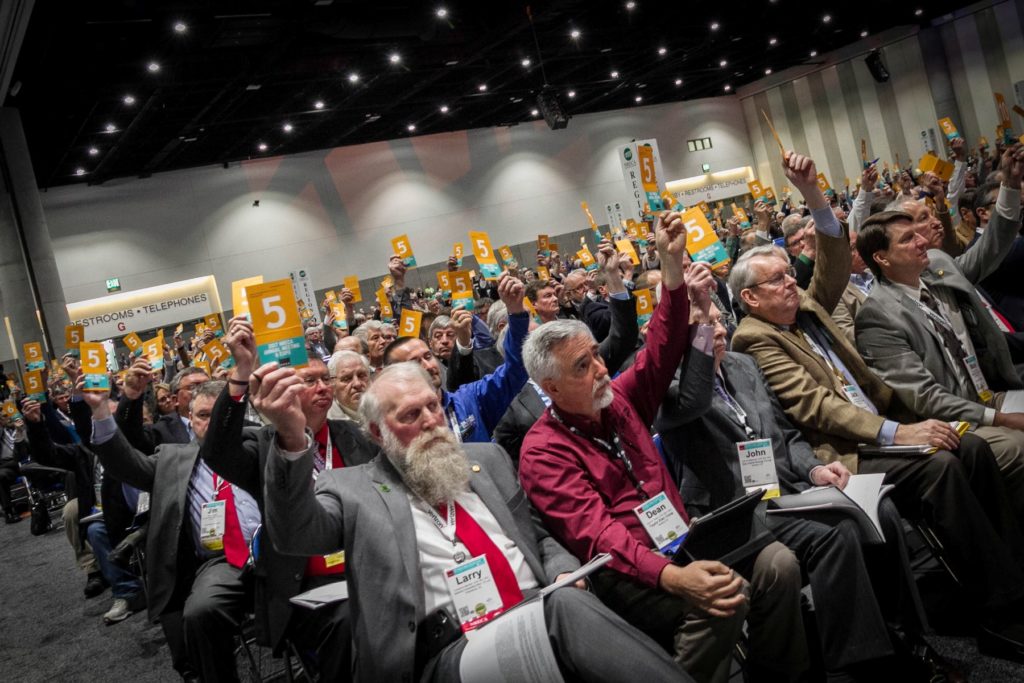
A critical component of electric cooperatives is the time-tested model of democratic member control.
In an era of rapid technological and political change, though, there’s no reason for the model to stay static. And, it’s always helpful to examine current practices.
Those are the ideas behind a 20-member task force commissioned by NRECA and the National Rural Utilities Cooperative Finance Corporation to examine the co-op governance process.
“As member-owned, not-for-profit entities, electric cooperatives benefit from open and transparent governance and the positive involvement of the communities they serve,” NRECA CEO Jim Matheson said.
Sheldon C. Petersen, CEO of CFC, said the task force’s work will build on the governance practices that are essential parts of the cooperative model.
“Proper governance—from ensuring democratic member control to adopting sound board policies—remains a bedrock of our electric cooperative network,” Petersen said. “CFC looks forward to helping facilitate activities of this new task force as discussions move forward.”
The panel held its kickoff meeting on Feb. 26 in San Diego, in conjunction with the 75th NRECA Annual Meeting, where Matheson and Petersen welcomed it and outlined its mission.
It has representatives from each region appointed jointly by the two association CEOs from distribution co-ops, statewide associations, and G&Ts.
According to Matheson, the selections were made with attention toward diversity in geography, demography, length of board or cooperative service, system size, professional background, and other factors.
The chairman is Bob Schwentker, senior vice president and general counsel at the North Carolina Association of Electric Cooperatives and North Carolina Electric Membership Corp. in Raleigh. Schwentker also chairs the Electric Cooperative Bar Association Advisory Board.
Among the areas of review are director nominations; director elections; board meetings; board composition, responsibilities of a board of directors; director qualifications and compensation; and member access to meetings and co-op information.
The task force is based on the principle that cooperatives are democratic organizations owned and controlled by their members.
“The local ownership and local control of electric cooperatives leads to empowered local communities,” Matheson said.
In December 2016, the NRECA Board adopted a resolution recommending that NRECA and CFC create and support the member task force. The CFC Board adopted a similar resolution.
Task force members said they expect to seek input from electric co-ops across the country regarding governance efforts, practices, and challenges throughout the entire cooperative community.
The next meeting is set for March 21-22 at NRECA headquarters in Arlington, Virginia. At least two other full group meetings will occur, with the task force scheduled to complete its work in 2017. Its report will be shared with member systems.
If you have a comment, question, or concern to share with the task force, send it to governance@nreca.coop.
Steven Johnson is a staff writer for NRECA.